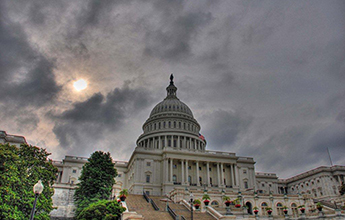What the Sequester Means for You
February 26, 2013
 |
| Cuts to education, massive employee furloughs and a federal government shutdown loom if congressional Republicans and President Obama cannot agree on a budget deal by Friday. |
If you think the looming “sequester” – the series of automatic federal spending cuts set to go into effect Friday, March 1 – doesn’t affect you and your family, think again.
From forcing deep cuts to education and local law enforcement to slashing vital health and safety regulatory agencies, the sequester could cost upwards of 2 million jobs – in both the public and private sectors.
New state-by-state reports compiled by the White House show just how big an impact it will have on jobs and public services in your area.
For example:
- North Carolina will lose $25.4 million in education funds, potentially forcing the layoff of 550 teachers
- Rhode Island will see $126,000 in job training funds slashed, affecting 4,550 workers
- In Kentucky, 11,000 civilian Defense Department employees will be furloughed without pay
Congressional Republicans and President Obama agreed to the sequester in the summer of 2011. Under that agreement, failure to slash the deficit by $4 trillion by 2013 will result in automatic across the board cuts totaling almost $1 trillion.
Originally set to kick in at the start of the new year, Congress agreed to push the deadline to March.
In state legislatures and governors’ mansions across the country, both Democrats and Republicans say they are concerned that the sweeping cuts could interrupt the tentative economic recovery.
Says Virginia Gov. Bob McDonnell (R) in a letter to congressional lawmakers and President Obama:
When fully implemented, [the cuts] could force Virginia and other states into a recession. Sequestration-mandated reductions will be implemented with no regard for relative national priorities.
IBEW members employed by the federal government or government contractors will be hit especially hard.
Congress will soon be gearing up for an even bigger budget battle post-sequester. The Continuing Resolution that funds the overall discretionary operations of the federal government expires March 27, which means the government could literally shutdown all together in a few weeks.
Says International President Edwin D. Hill:
The last thing Congress needs to do is cause self-inflected damage to the economy. Anything that kills good jobs is going in the wrong direction. We need House Republicans and President Obama to scrap the sequester and work on a budget that prioritizes jobs and investment, not arbitrary austerity.
Photo used under Creative Commons license from Flickr user l’ennui d’ennui.